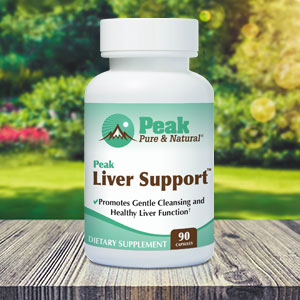As much as I enjoy the conveniences of living in a city, one thing I’m not so keen on is knowing the air I breathe isn’t exactly the cleanest.
Even when I try to do something healthy, like take a walk around my building, I have to question if it’s worth breathing in the air pollution and exhaust from all the cars whizzing by.
I don’t do it often because I know it can increase risks for asthma and other respiratory ailments — not to mention heart disease and cancer. But there’s a new threat that has me seriously thinking about getting a treadmill…
Research has found that short-term exposure to air pollution can worsen toxic protein buildup in the brain and accelerate cognitive decline.
PM2.5 air pollution hastens the hallmarks of Alzheimer’s
Air pollution consists of fine particulate matter, tiny particles ranging from 10 micrometers to less than 2.5 micrometers in width, which are 100 times thinner than a human hair. It can come from wildfire smoke, car exhaust, construction site debris or emissions from factories.
Particulates that are 2.5 micrometers or smaller (PM2.5) are so tiny that when inhaled, they’re easily absorbed into the bloodstream. Previous research has linked PM2.5 air pollution with dementia, loss of cognitive function and accelerated cognitive decline.
A team of researchers at the University of Pennsylvania examined brain samples from 602 autopsies from the Penn Medicine Brain Bank — and in doing so, they made a grim discovery…
For every increase of 1 microgram per cubic meter of PM2.5, the risk of greater Alzheimer’s disease-related amyloid and tau buildup, a hallmark sign of the disease, increased by 19 percent.
In addition, the researchers found those who lived in areas with high concentrations of PM2.5 had greater cognitive impairment and more rapid onset of symptoms — including memory loss, difficulty with speech and diminished judgement — compared to people who lived in areas with lower concentrations of air pollution.
In short, living in areas with high concentrations of fine particulate air pollution is associated with increased buildup of amyloid and tau proteins in the brains of Alzheimer’s patients and speeds up cognitive decline.
Even more worrying, it doesn’t take long…
Those who lived in areas with higher concentrations of fine particulate air pollution for even just one year had more severe accumulation of amyloid plaques and tau tangles compared to those with less exposure.
“This study shows that air pollution doesn’t just increase the risk of dementia — it actually makes Alzheimer’s disease worse,” says Dr. Edward Lee, co-director of Penn’s Institute on Aging. “As researchers continue to search for new treatments, it’s important to uncover all of the factors that contribute to the disease, including the influence of the environment in which they live.”
Protecting ourselves from ‘brain smog’
Lee notes that while air pollution is at the lowest levels in decades, the study “underscores the value of environmental justice efforts that focus on reducing air pollution to improve public health.”
So what are city folks like me supposed to do in the meantime?
For starters, we can do our best to stay away from heavy traffic and avoid exercising outdoors near areas with heavy traffic or on days when the air quality index is 101 or higher. My phone gives me the daily air quality reading along with the weather, but that information can also be found on the EPA’s website.
Also, we can try to keep our indoor air as clean as possible by keeping the windows closed during high traffic times and investing in an HEPA air purifier that captures PM2.5 air pollutants.
Some nutrients help protect against the effects of air pollution. One study found that people who took B vitamins reversed the adverse health effects of air pollution on their heart and immune system. The participants took 2.5 mg of folic acid, 50 mg of vitamin B6 and 1 mg of vitamin B12 daily.
Antioxidants can also help by neutralizing the free radicals released inside the body by air pollution. Eating a diet rich in fruits and vegetables, plus drinking a cup or two of green tea per day, will provide plenty of pollution-busting antioxidants.
Sources:
Smog in the brain: Dirty air speeds Alzheimer’s decline — ScienceDaily
Ambient Air Pollution and the Severity of Alzheimer Disease Neuropathology — JAMA Neurology
Particulate Matter Information — Pima County
Read full article here





